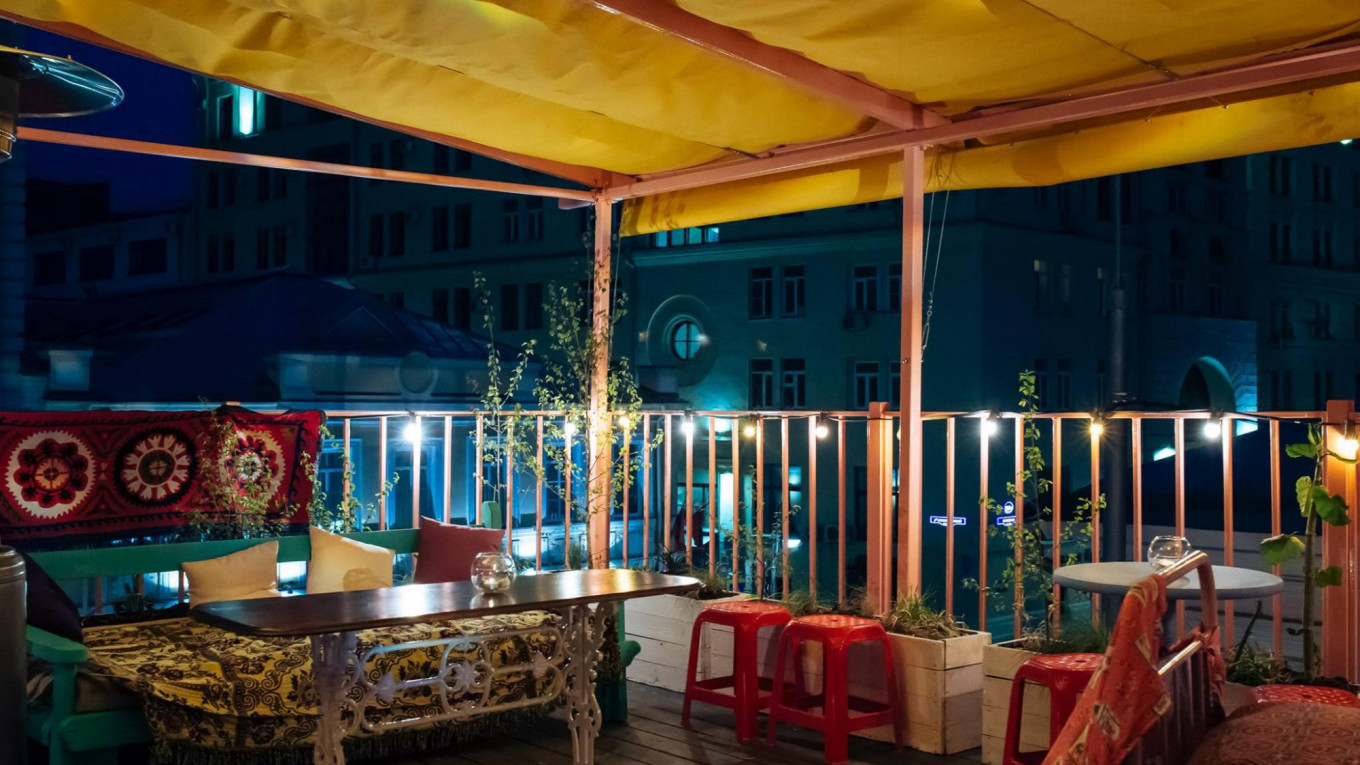Mitya Borisov, the restaurateur famous for the wine bar chain Jean-Jacques and the pub chain John Donne, is diversifying. Just a couple of months ago, he opened Proliv, an arty cafe targeting Moscow’s intelligentsia. Now he has unveiled BarDelhi, which, judging by the crowd, aims for a different audience: young, hip and rather well-off Muscovites interested in good cocktails and exotic food.
BarDelhi is a collaboration between the team behind the cult Indian vegetarian restaurant Moscow-Delhi, Roman Milostivy, whose cocktail bar Chainaya is on the list of the world’s best bars, and Vladimir Basov, supplier of organic and biodynamic wines.
BarDelhi takes up two floors and the roof of a building previously occupied by one of Borisov’s John Donne pubs. The first floor is the bar, the second is the main dining room with the tandoor and the roof is the patio.
The press promised a truly unique experience—and that is exactly what I got. It began with the seating arrangements: The staff initially offered a seat next to the tandoor, but the heat coming off this traditional Indian oven was so strong that I was sweating in no time and asked to move to a second-floor table.
The menu offers one vegetarian (1,200 rubles/$21) and two non-vegetarian sets (1,500 rubles) with either chicken or lamb. After lengthy explanations I settled on a lamb set. First came the appetizers, which included sautéed lamb brain, churumuri—a rice and vegetable appetizer—and, surprisingly, home-made fries.
The waitress recommended the gin and tonic with homemade tonic water – blended with anise, cardamom, pepper, lemongrass and citrus fruits. Unfortunately, the tonic’s taste was so overwhelming that it was only drinkable when the ice had melted and diluted it.
Masala tea seemed unusually cheap at 100 rubles, but when it was served, this became clear—it was more of a “shot” of masala rather than a cup, and can be downed in a single gulp. There is also masala coffee for 150 rubles a shot.
There was ample time to sip on drinks, as more than an hour passed between the appetizers and the arrival of the main dish—a time in which my chair managed to collapse under me, leaving me on my back in the wreckage.
Swiftly bringing two new chairs and stacking one on top of the other, the staff apologized profusely, with the bizarre explanation that these chairs can only be used two at a time. It was only then that I took a glance around the restaurant and noticed that most of the other diners were sitting on double-stacked chairs.
The food at BarDelhi is good but the portions are small—don’t try to share a set between two people. The main dish of the set included a (very spicy) lamb rib in chili sauce, a lamb kebab, basmati rice, naan bread and yogurt-based raita sauce.
While the staff speaks English, Russian, French and supposedly many other languages, it’s still hard to get things across. When you order one tea and you get two teas and a coffee—all of which then appear on your check— it’s clear that the service is a little on the amateurish side. When I pointed out the mistake, the staff just deducted random items from the check and I ended up paying 500 rubles less.
I spent over two hours at BarDelhi, when the plan was to stop by for an hour at most. It’s not a place for a quick dinner or a date, but a venue for a casual celebration with friends.
A Message from The Moscow Times:
Dear readers,
We are facing unprecedented challenges. Russia's Prosecutor General's Office has designated The Moscow Times as an "undesirable" organization, criminalizing our work and putting our staff at risk of prosecution. This follows our earlier unjust labeling as a "foreign agent."
These actions are direct attempts to silence independent journalism in Russia. The authorities claim our work "discredits the decisions of the Russian leadership." We see things differently: we strive to provide accurate, unbiased reporting on Russia.
We, the journalists of The Moscow Times, refuse to be silenced. But to continue our work, we need your help.
Your support, no matter how small, makes a world of difference. If you can, please support us monthly starting from just $2. It's quick to set up, and every contribution makes a significant impact.
By supporting The Moscow Times, you're defending open, independent journalism in the face of repression. Thank you for standing with us.
Remind me later.






